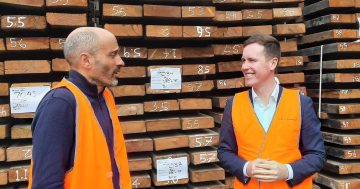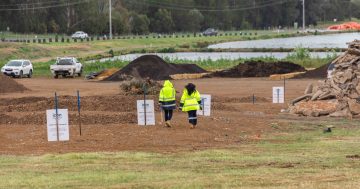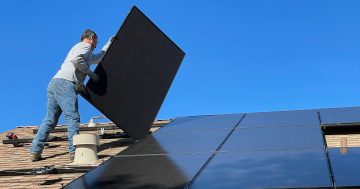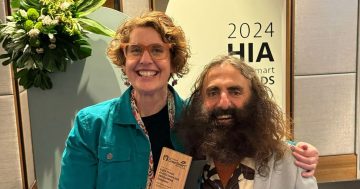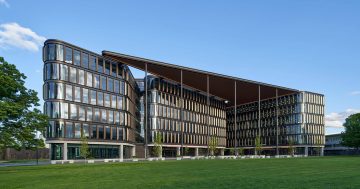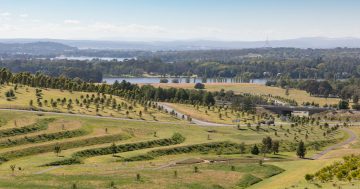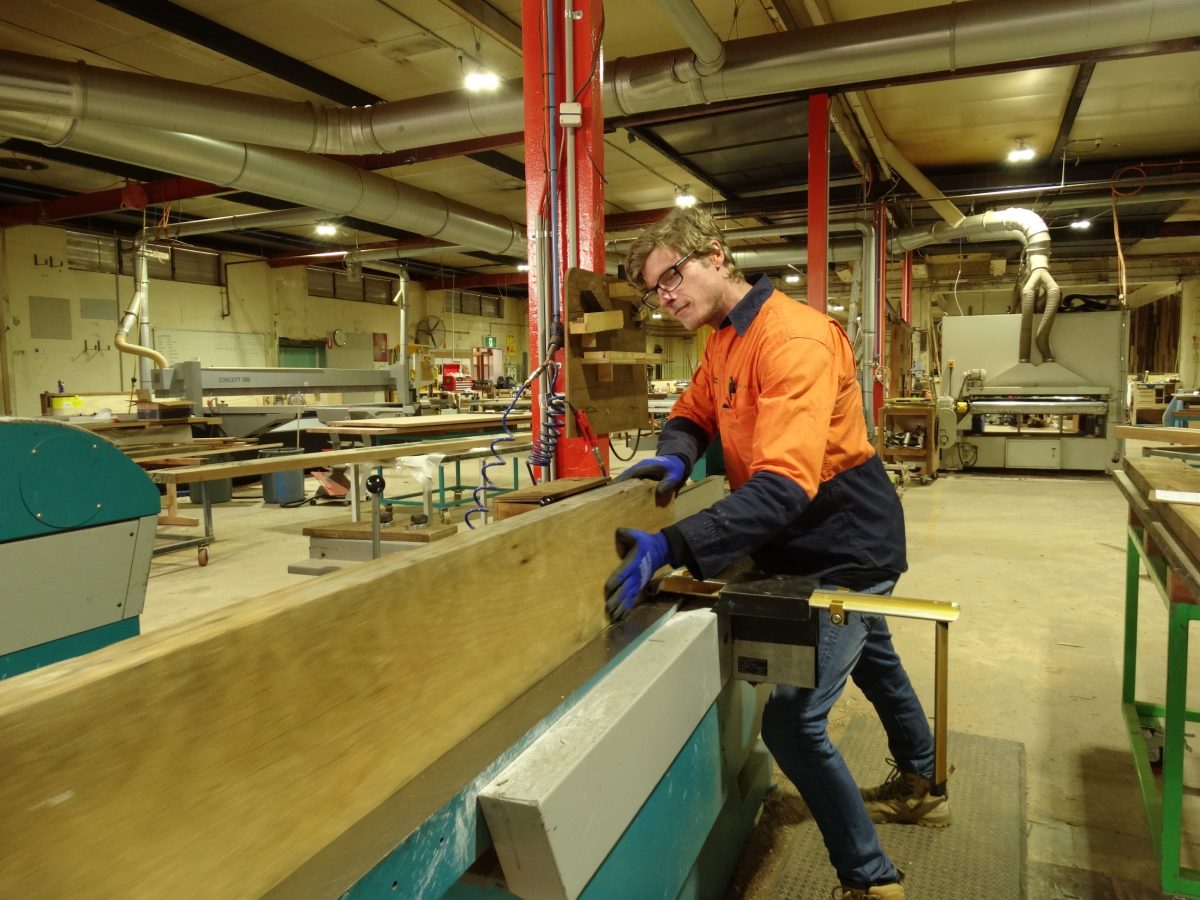
Salvaged Australian hardwoods are redressed for repurposing at Thor’s Hammer. Photo: Kirsten Duncan.
Canberra’s first Circular Economy Symposium will bring business people, academics, policy makers and community leaders together to kick start a conversation about creating a healthier way to live.
The one-day symposium on 15 September will showcase local sustainability leaders, share the latest research, showcase policy direction and shine a light on the grassroots of Canberra’s sharing economy.
Canberrans currently consume nine times what their local land area provides and ACT Commissioner for Sustainability and the Environment, Dr Sophie Lewis says it’s time to “close the loop on last century’s harmful take–make–waste production practices and consumption behaviours”.
By embracing the circular economy, Dr Lewis says businesses can reduce their resource usage, reuse and share products, prolong product lifespans and recycle materials.
“Moving towards a circular economy is a chance for so many wins for Canberra, providing a healthier way to live, to be better connected to and support the environment, and to open up business opportunities,” she says.
The products and services purchased and used by Canberrans every day have an impact well beyond the ACT’s borders.
Many innovative businesses in the ACT, such as Light House Architecture and Science, already demonstrate the circular economy principles of designing out waste and keeping materials in use.
Light House managing director and lead scientist Jenny Edwards says the residential architecture practice integrates science to deliver smaller, smarter, sustainable housing.
“The main way we incorporate circular thinking is by reusing entire houses,” she says.
“We work with the existing materials and upgrade them thermally, and turn them into more modern and comfortable homes.”
She says moving to a circular economy will make Canberra’s local market more resilient to external shocks and stresses like we have seen during the pandemic.
“COVID supply chain issues, such as time delays and cost increases, have made the power of salvage and reuse much more obvious,” Jenny says.
“Renovating an existing home and reusing as much material as possible is a great example.
“Or, in cases where demolition is required, careful salvaging of materials from the old home to be reused in the new home.
“Adopting a circular economy will develop new markets for salvaged material, and lead to more innovative reuse and remanufacturing.
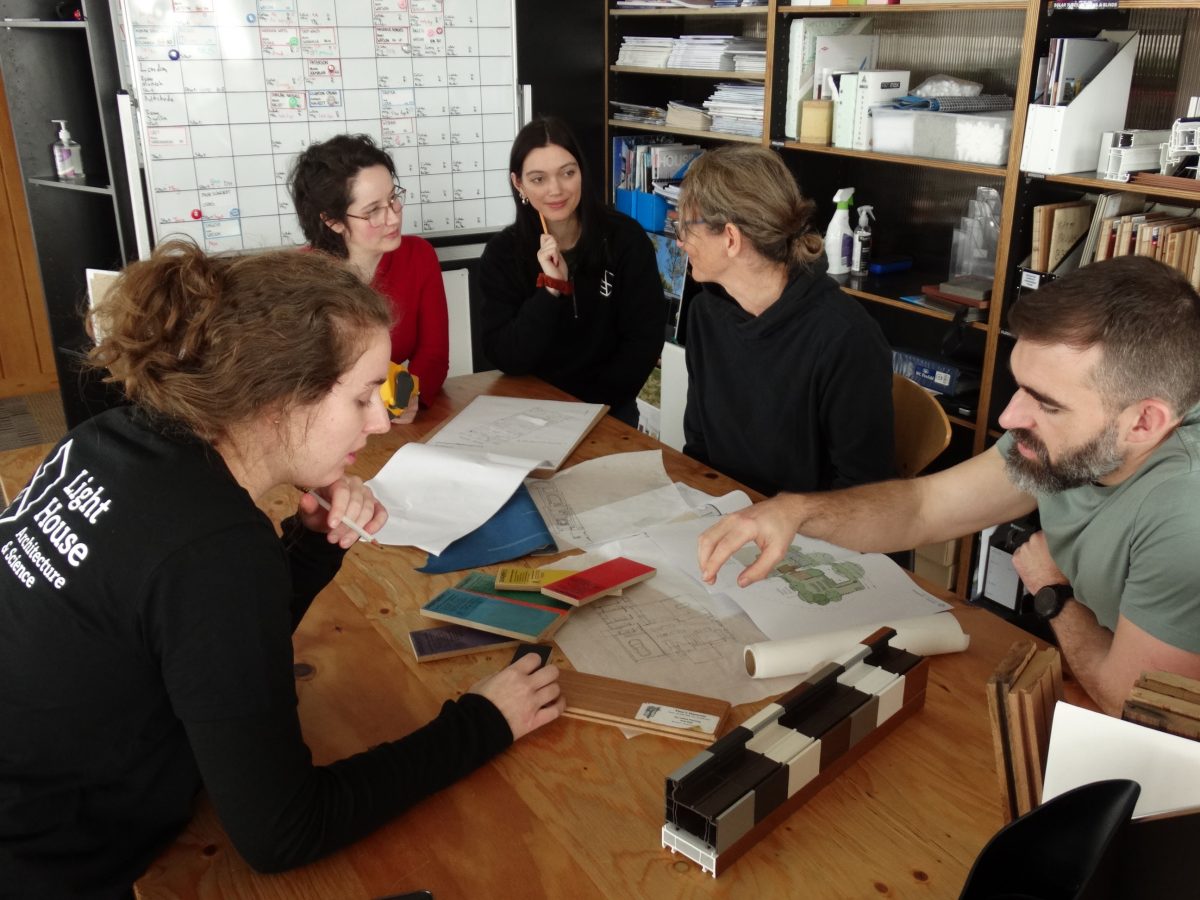
The Light House team incorporates recycled materials and high-quality insulation techniques into home renovation plans. Photo: Kirsten Duncan.
The Light House team works with 360 Building Solutions which salvages and reuses materials, chooses replenishable timber instead of emissions-intensive steel, and is talking with concrete suppliers to find lower carbon options.
It passes on unwanted timber to Thor’s Hammer which repurposes it into refurbished building materials and beautifully crafted furniture. Even the sawdust gets pressed into clean-burning briquettes as an alternative to firewood.
Anyone interested in building a sustainable future for their organisation and the Canberra region is invited to participate in the symposium hosted by the Conservation Council ACT and the Office of the Commissioner for Sustainability and the Environment.
The more assorted the mix of enterprises and expertise, the greater the possibilities for sparking opportunities for collaboration and innovation.
Guest speakers from across Canberra’s businesses, universities, government and community sector will explore the challenges and opportunities of transitioning to a circular economy.
Speakers will include the Community Toolbox Canberra founder Kathy Ehmann and Monash Sustainable Development Institute sustainability strategist Julie Boulton who has a focus on responsible consumption and production, and its applicability to the Australian textile and fashion industry.
Asia Pacific Waste Consultants project director Amardeep Wander, an international waste management and marine litter expert, will speak about her comprehensive data collection methodology that supports a common approach for waste auditing, endorsed and adopted by World Bank.
Co-founder of The Green Shed Sandie Parkes will speak about the organisation which manages the Reuse contracts at resource management centres in the ACT which attract about 20,000 visitors each week and employ more than 70 local people.
If you’re looking to up your sustainability game, the CBR360 Circular Economy Symposium at Kambri, ANU on Thursday 15 September provides a great opportunity to contribute to the circular conversation, find inspiration and connect with the region’s circular leaders.












